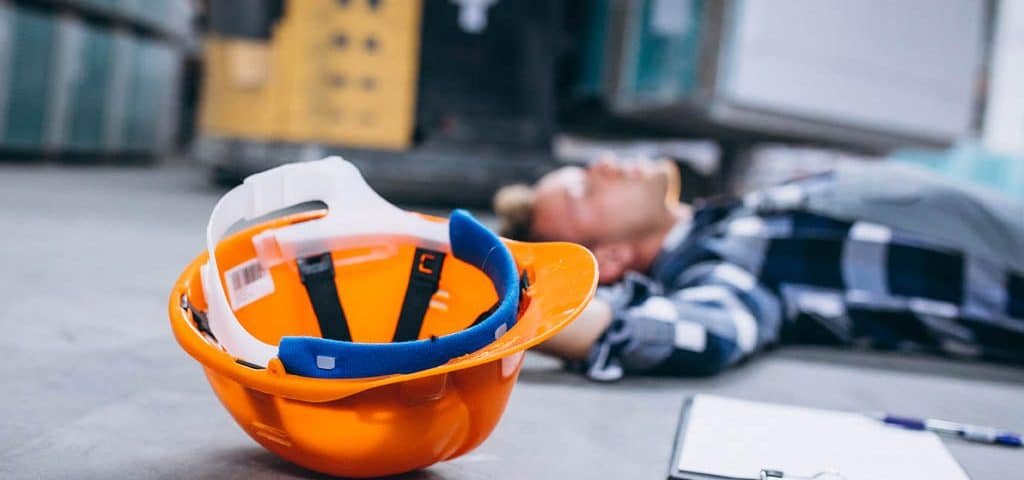I’ve injured myself at work; what are my employer’s responsibilities?
Have you come down with a work injury? If yes, you are probably aware of your right to claim compensation. However, this will only happen if the damage has occurred at the workplace while performing your duty. In contrast, your employer has some responsibilities to take the best care of you.
This blog has gathered the information you need as an employee, including your compensation rights, exceptions, and things you should do to prevent injuries at work.
What is a work injury? Can you claim compensation?
Any illness or injury “emerging out of and in the course of employment” is treated as a work injury.
Suppose you seek to pursue workers’ compensation benefits. In that case, you must officially prove that the injury has occurred in the workplace, or better said, it is a work injury.
In plain words, if you suffered from a work injury and got hurt performing activities for your employer’s benefit, you can receive workers’ compensation benefits.
Some work injuries include:
- Slips, trips, and falls
- Muscle strains
- Cuts and lacerations
- Being hit by falling objects
- Exposure to loud noise
- Crashes and collisions
- Inhaling toxic fumes
- stress-related injuries
- Walking into objects
- Fights at work
- Occupational diseases
In the case of nurses and workers who need to utilize needles while working, needle stick injury is widespread.
Suppose you suffer from a work injury or illness. In that case, you should communicate with the employer as soon as it is diagnosed. In some cases, damage reported after the worker is notified of being laid off from the job cannot be covered by workers’ compensation.
What are the widespread causes of a work injury?
Here are some common causes of getting injured at work:
- Slips and falls
- Repeated motion exposure at work
- Improper lifting technique
- Car accidents for business purposes
Notifiable incidents
If the work injury results from a notifiable incident, you have to notify Occupational Safety and Health Administration (OSHA) immediately.
A notifiable incident is:
- Death
- Serious injury or illness
- Dangerous incident
What kind of work injuries are not under cover of compensation?
Employees may not acquire compensation benefits under some conditions:
- Injuries that occur during an employee’s lunch break
- Going outside the workplace for personal work
- Injuries at company events
- Injury while violating a workplace safety rule
- Injuries occurring while commuting to and from work
- Involving in something that is considered “employee misconduct
What are the alternatives to workers’ compensation
Suppose your employment status does not make you eligible for the coverage of workers’ compensation. In that case, it does not necessarily mean you have no responsibility for an on-the-job injury. In addition to claiming workers’ compensation, suing an employer is also an option, but it’s generally not permitted.
There are some alternatives to workers’ compensation coverage:
- Federal Employees’ Compensation Act: for non-military federal employees
- Black Lung Benefits Act: for current and former coal miners disabled from pneumoconiosis (black lung disease)
- Federal Employment Liability Act (FELA): for railroad worker’s injury
- Merchant Marine Ac/Jones Act: for seamen
- Longshore and Harbor Workers’ Compensation Act (LHWCA): for specified employees of private maritime companies
What are the employer’s essential responsibilities?
According to OSHA, All employers must provide a harmless work environment for their employees. In addition, they must use tools, educate employees, and follow all the safety regulations to avoid work injuries.
When you are injured at the workplace, your employer should:
- Have an emergency action plan (EAP) in OSHA standards to facilitate and organize employer and employee actions during workplace emergencies.
- Provide you with a form to file a workers’ compensation claim within one working day.
- Give you a completed copy of the claim form within one working day.
- Authorize you a sum for emergency medical treatment while the insurance carrier observes the filed claim.
- Provide first-aid and medical care facilities
- Furnish further medical attention, such as selecting a doctor
- Make the first report of occupational injury, and forward the completed form to the claims administrator or workers’ compensation insurance company within one working day
- Include all the possible details about the occupational injury in the report
- In case of a permanent disability, provide you with reasonable accommodations
- Inform the insurance company/claim administrator
- Provide details to the insurer’s attorney in case of a claim pursuance
- Contact you as well as the assigned doctor for support
- Report all work-related injuries, instead of even minor ones
- Educate all the employees of their rights and benefits under their workers’ compensation program.
How can you possibly decrease the risk of a work injury?
Employers should consider some deeds to avoid work injury:
- Considering psychological, cognitive, and social demands
- Making an appropriate Work environment
- Risk management
- Modifying the workplace
- Training/educating
- Contributing to the workplace
Let’s recite
As well as a compensation claim, your employer has to provide you with some accommodations when you get injured at work. Now that you know your employment rights, you will manage better at the time of crisis. However, we hope you never experience such injuries.
Southern Nevada Occupational Health Center would be a proper choice to get to while you are injured. It’s dedicated explicitly to occupational diseases and work injuries treatment and consultation.
For further information about work-related injuries, visit our website or contact our experts so that they will take good care of you.




